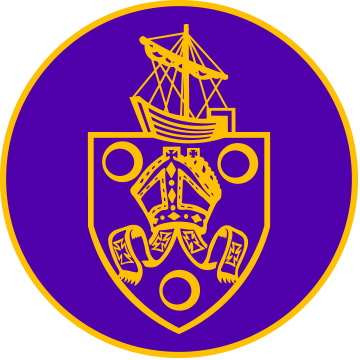Assessment
At St. Nicolas school the main purpose of assessment is to help pupils, teachers and parents plan their next steps in learning. We believe that assessment provides the basis of informed teaching, helping pupils to reach their potential and build on previous learning. Our assessment processes aim to inform school leaders, governors and the wider community of pupil achievement.
Assessment for Learning
High quality and on-going effective assessment is the basis for teachers to make decisions on the content which should be secured before moving pupils on. Formative assessment becomes a frequent, low-risk, useful tool for determining when a pupil is ready to move on with their learning. To ensure all pupils make good progress, teaching staff continually review, respond and assess so they can address misconceptions during a lesson. Effective teachers find out what children need to learn, teach clearly and support children to practise and apply it!
Assessment across the curriculum
To ensure the key knowledge and skills are sufficiently understood and that children have secure foundations without gaps, each of our projects have clear outcomes for each subject (not in P.E.). Teachers keep a record of whether a child has achieved the subject expectation at the end of each project.
Teachers use tasks designed to provide an outcome to show what children have learnt and understood. These tasks provide an opportunity for assessing the long term memory as well as ‘in the moment’ learning. These might be Big Questions, purposeful activities that demonstrate outcomes, written outcomes, or summative assessments.
Children’s progress in subject specific vocabulary is recorded using our vocabulary progression document.
Summative assessment
Summative assessment provides accurate information regarding a child’s attainment and progress at a point in time. Teachers at St. Nicolas record a summative judgement for pupils at three assessment points in the year and record them on our tracking system.
This data is used to monitor achievement and provide information about cohort strengths and areas to prioritise. This information is shared with parents at Parent Teachers Interviews and in the end of year report. We encourage parental involvement and contribution about their child’s attainment and progress by sharing their child’s Learning Card during discussions.
When appropriate, we use standardised tests to record performance in a specific area. Tests may be used periodically as part of the assessment process to identify progress and gaps in understanding.
We ensure statutory assessments at the end of the EYFS, KS1 and KS2 are carried out.
Assessment in the Early Years Foundation Stage
In our Reception classes, ongoing assessment is an integral part of the learning and development process. Staff observe pupils to identify their level of achievement, interests and learning styles. These observations are used to shape future planning.
Practitioners use the Tapestry app on i-pads to record children’s observations and future targets. Parents are invited to engage with their child’s learning journey to view observations and add comments and photos from home.
Within the first six weeks that a child starts reception, staff will administer the Reception Baseline Assessment (RBA).
At the end of the EYFS, the EYFS profile is completed for each child. Pupils are assessed against the 17 early learning goals, indicating whether they are:
- Meeting expected levels of development
- Not yet reaching expected levels (emerging)
The profile reflects ongoing observations, and discussions with parents/carers. The results of the profile are shared with parents/carers for their child.
The profile is moderated internally (referring to the Development Matters guidance) and in partnership with other local partnership schools, to ensure consistent assessment judgements. EYFS profile data is submitted to the local authority.
Learning Cards
At St. Nicolas we use Learning Cards which give details of the curriculum they are learning in the form of child friendly ‘I can…’ statements taken from the National Curriculum. Pupils understand clearly where they are in their learning and what skills make a good reader, writer and mathematician.
Through observation, discussion, marking and records of work, teachers decide if an objective has been met.
At the summative assessment points, teachers use the information from the Learning Cards to make a judgement in relation to year group expectations:
- Emerging = mastered objectives in previous year and beginning to work on objectives in next year.
- Developing = working on the current year objectives.
- Expected = met the required objectives for the end of year.
- Mastering = has met the current end of year objectives and is broadening and deepening understanding and application.
Reporting
A written report for each child is sent to parents/carers at the end of the Summer term. Reports outline a child’s progress in the subjects taught and include a personal comment. Targets for literacy and numeracy are also set. For children in Year 2 and 6, additional information including details of the SATs testing will be provided. There is an opportunity for parents to discuss any issues arising from the report. For children in Year 1, information about the statutory phonics screening check will also be provided.
